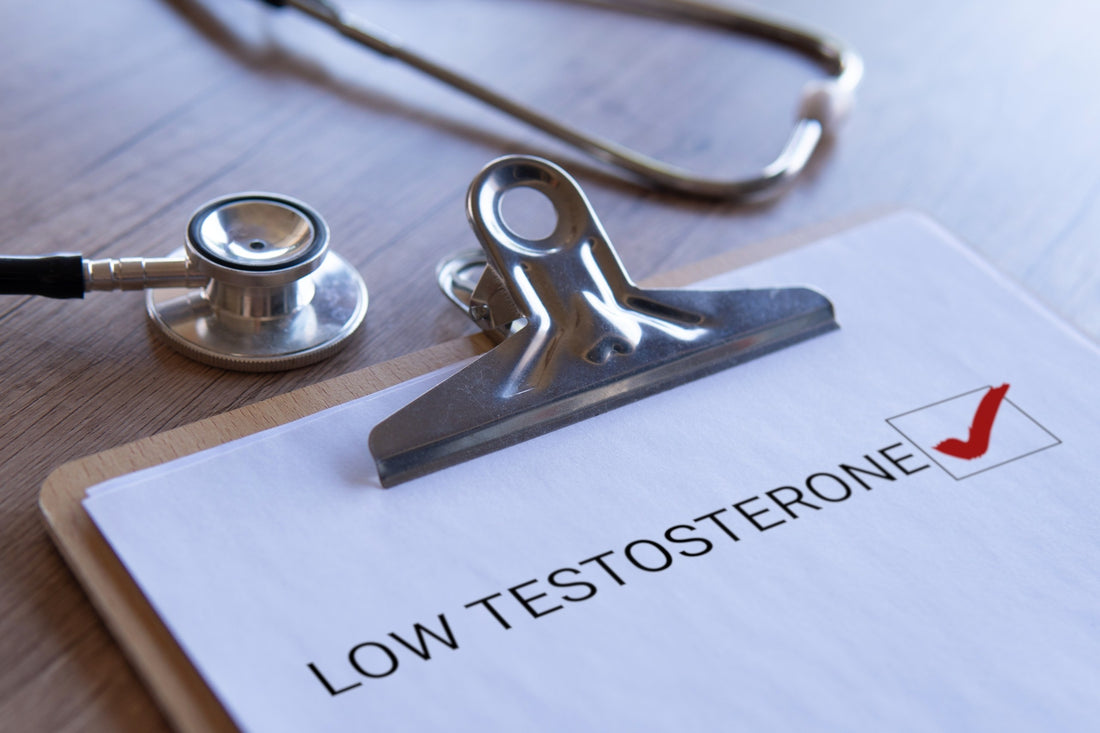Testosterone stimulates sperm production and is the hormone behind your sex drive. It also helps build muscle and bone mass. In the fertility realm, while low testosterone doesn’t always cause infertility, it may make it harder to conceive. Read on to learn more about the symptoms of low testosterone and its impact on male fertility.
Symptoms of low testosterone
Low levels of testosterone in men (also called hypogonadism) can lead to multiple symptoms, including decreased libido, erectile dysfunction, fatigue, weight gain, less body hair, loss of muscle mass, and decreased bone density. It can also be the culprit behind mood swings, low self esteem, sweating and hot flashes.
A simple blood test (usually in the morning, as that is when testosterone levels are highest) can give you more information on your testosterone. In adult males, normal testosterone levels range between 300 and 1,000 nanograms per deciliter (ng/dL). If your testosterone levels are below 300 ng/dL, your doctor may recommend a workup to determine the cause.
How low testosterone impacts fertility
Low testosterone doesn’t directly cause infertility. Men with low or borderline T levels can have sufficient levels for sperm production, but it may lead to lower sperm counts or less healthy sperm. That said, low testosterone levels can impact fertility in several ways:
- Reduced sperm production: Testosterone is required for sperm production. When testosterone levels are low, the body may produce fewer sperm, leading to lower sperm count and reduced fertility.
- Impaired sperm quality: Sperm may have decreased motility (ability to move), abormal morphology (shape), or reduced viability (ability to survive). If you think that low testosterone levels are impacting your sperm health, you can check your sperm’s ability to move with an at home test kit. The YO Home Sperm Testing Kit provides you with information on your motile sperm concentration which you can then share with your doctor.
- Erectile dysfunction: Erectile dysfunction makes it difficult to achieve or maintain an erection, which can interfere with sexual intercourse and conception.
- Hormonal imbalance: Low testosterone can disrupt your body’s hormonal balance, which can affect the reproductive system and fertility.
What causes low testosterone?
Several factors can contribute to low testosterone levels, including:
- Age: Testosterone levels may decline with age. About 40% of men over age 45 will have levels below this range, but this isn’t essentially a cause for alarm.
- Medical conditions: Certain medical conditions, such as obesity, diabetes, hypothyroidism and sleep apnea can affect testosterone production. Injury or infection in the testicles, and tumors and diseases of the pituitary gland could potentially be behind low T-levels.
- Medications: Corticosteroids, antidepressants, opioids, and certain cancer treatments can lower T levels.
- Lifestyle factors: Stress, excessive alcohol consumption and smoking can also contribute.
Can I treat low testosterone?
Yes! As noted by the American Society for Reproductive Medicine (ASRM), testosterone treatment is available in the form of shots, gels, patches or implantable pellets. Men on treatment usually experience low sperm counts or no sperm in their semen, however, once the testosterone is stopped, the sperm should return within about three months, with no permanent damage.
Key Takeaway
While low testosterone doesn’t always cause infertility, it can make it more difficult to conceive. If you’re concerned about your fertility or experiencing symptoms of low testosterone, it’s important to seek medical advice. With proper diagnosis and treatment, you can improve your fertility and increase your chances of fatherhood.

